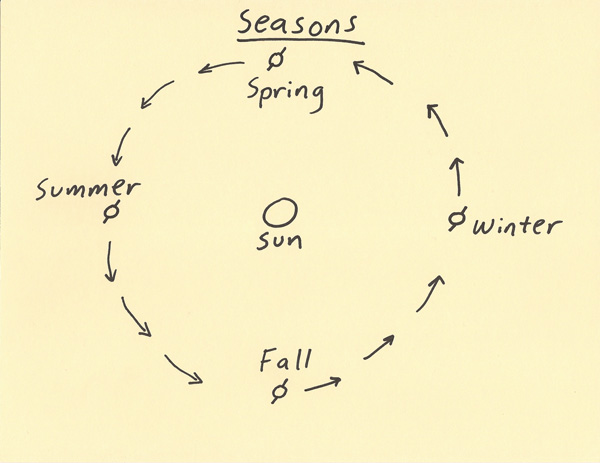
The sun is much more massive than the earth. Thus, the earth and sun go around each other but because the sun is much more massive than earth, the situation results in basically the earth revolving around the sun. The sun and earth both feel tidal forces from each other but the earth feels a much stronger tidal force than the sun does since the earth is much smaller than the sun. The diagram below shows the sun in the middle with the approximate path that the earth makes around the sun. When viewed from above the north pole of the sun, the earth goes counterclockwise (or cyclonically) around the sun. It takes approximately 365.25 days for the earth to make one complete trip around the sun. The path around the sun is basically a circular shape. It is not a perfect circle but rather it is termed an ellipse. The earth does vary with distance from the sun but this change over the course of a year is minor. Thus, seasons are not caused by the earth-sun distance but rather by a factor that will be discussed next. In each of the earth sketches in the diagram below, notice the poles are slanted at an angle (~23.5 degrees) instead of being straight up and down. Also notice that during each season this slant is the same. Relative to the sun though, this slant changes from the North Pole being slanted more toward the sun (summer) to the North Pole being slanted more away from the sun (winter). This is what causes the seasons. When the slant is directly toward the sun (summer), the Northern Hemisphere summer occurs since the sun rays more directly strike the Northern Hemisphere. Also, the day length is longer in the summer which adds more cumulative heating during each day. When the Northern Hemisphere is having summer, the Southern Hemisphere is having winter. This can be seen from the diagram by noticing when the North Pole is tilted toward the sun, the South Pole is tilted away from the sun.  |